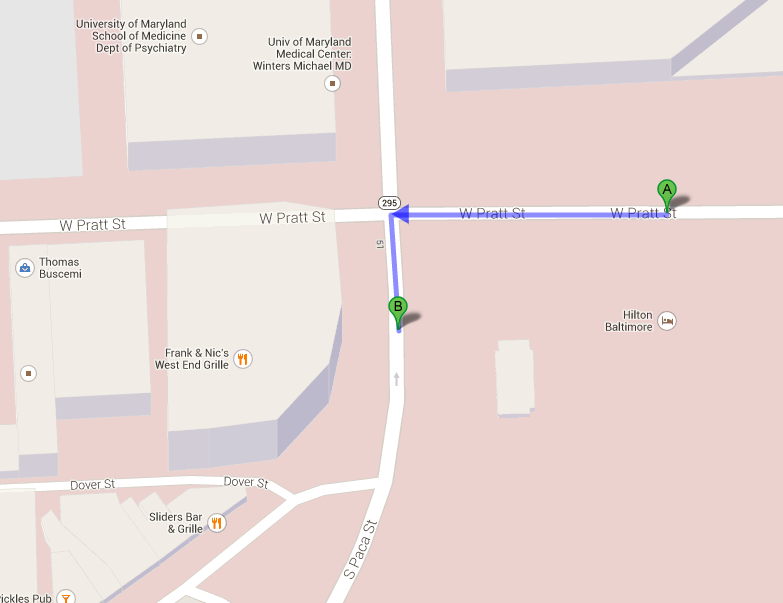With THATCampAAR less than a month away, it’s time to start thinking about the conversations you want to have and the problems you want to work on.
If you look at the schedule for the day, you will notice that the topics of the sessions are all “TBA.” This is where you come in! You control the schedule by proposing sessions, commenting on the session ideas you find interesting, and, on the morning of THATCamp, voting for the sessions you would like to attend.
Don’t wait until the last minute! Propose topics and questions that you would like to have a conversation about now. And comment on the sessions that you would like to participate in. Conversations that start now are more likely to be part of the schedule on November 22.
What makes a good session proposal?
Good sessions come in many varieties. Often they are organized around questions, projects, or points of concern.
For example, if you are interested in using technology for teaching, you could propose a session to talk about what strategies and tools other have used, what worked (and what didn’t), and what outcomes were seen.
Or if you have concerns about the ways a particular tool models space, language, or time and the implications of those assumptions, you could propose a session to discuss and evaluate that tool and its usefulness to scholars of religion.
Any topic connected to religion, technology, and the intersection thereof is fair game.
One useful way to structure a session is to focus on producing something that would be a resource for others. This could be an annotated list of current strategies, a manifesto or call to action, a collaborative essay, or a digital tool. You can include what you would like the session to produce as part of your proposal or suggest that it be determined by the group during the session.
What should I expect in a session?
You should expect to be an active participant in the sessions you attend. This means asking questions, sharing your ideas and opinions, and contributing to the goals of the session.
If you proposed the session, you should expect to be responsible for starting and facilitating the conversation and, if there is a particular goal, focusing the group on achieving that goal. You are not expected, however, to have the answers or to present the solution.
You are also under no obligation to attend only one session during a time block. If there are multiple sessions you want to be a part of, you can and should split your time between them. And if the conversation in a particular session shifts to a topic you are not interested in, join another.
How will the sessions be chosen?
We will finalize the schedule by voting during the first session on Friday.
All the session proposals will be printed and you will be given stickers to vote for the sessions you would like to participate in. The votes will be tallied and those sessions that have generated the greatest interest will be assigned to particular spaces and times.
You are also welcome to start up ad hoc sessions during the day as new conversations develop.
How do I propose a session?
To propose a session, log in to WordPress with the account information emailed to you when you were approved. On the left hand side of the window, select “Posts.” This will take you to a page that lists all the post currently published on aar2013.thatcamp.org.
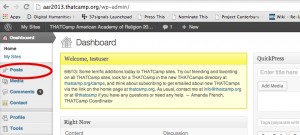
From here, select “Add New Post.” This will open up the post editor.
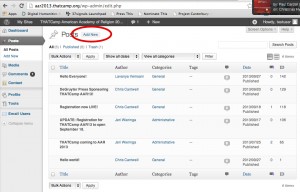
You can either write your session proposal here or copy over the text from Word or another text editor. Give your session a title and assign it a Category. You can assign multiple categories to describe the topic you want to discussion. Also, be sure to also select “Session Proposals” and the type of session as two of your category choices.
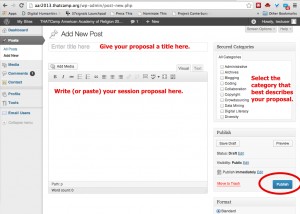
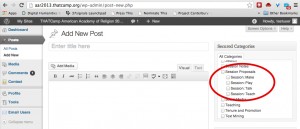
When you are finished, select “Publish.” The post will appear on the home page of aar2013.thatcamp.org.

